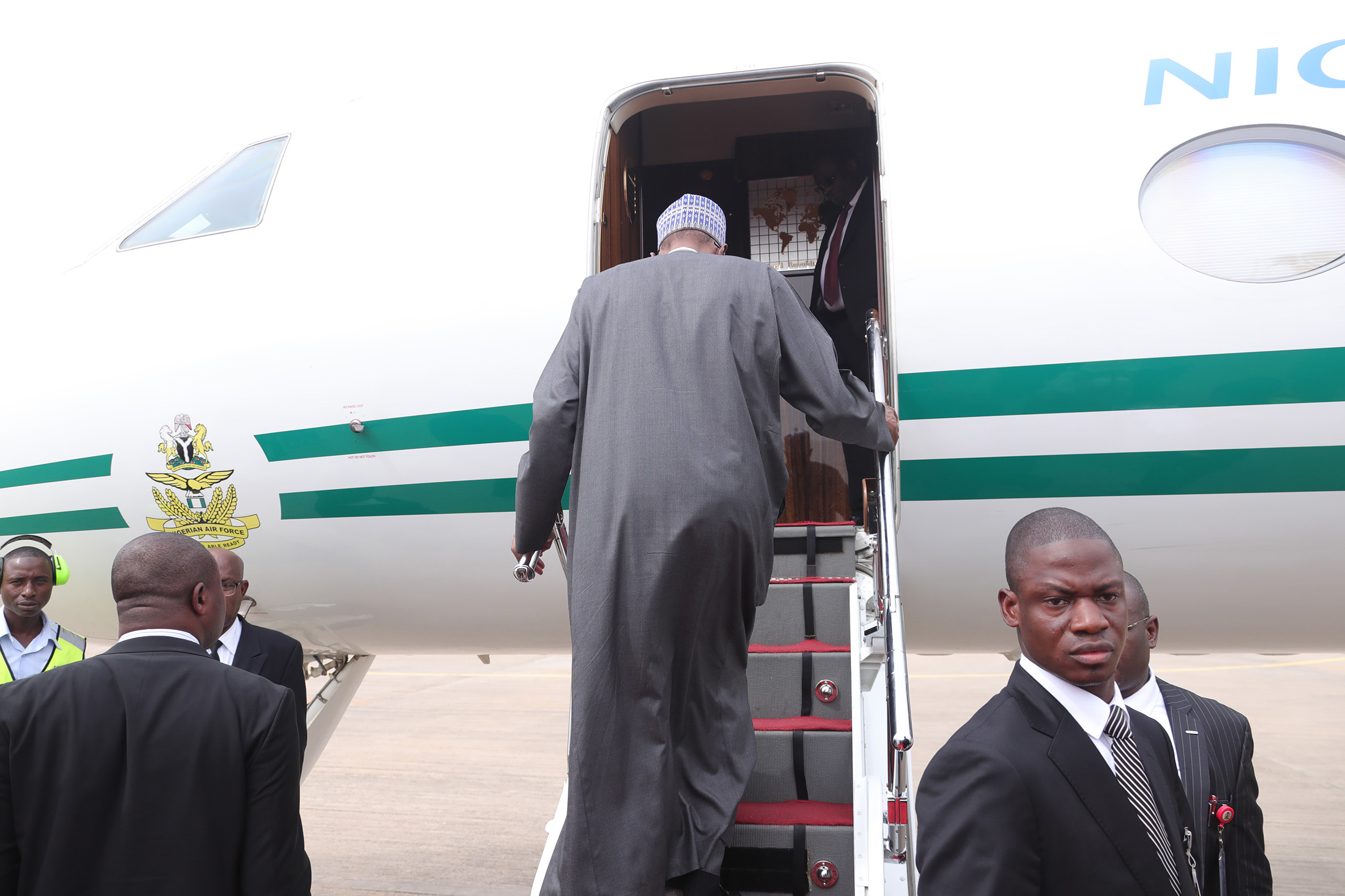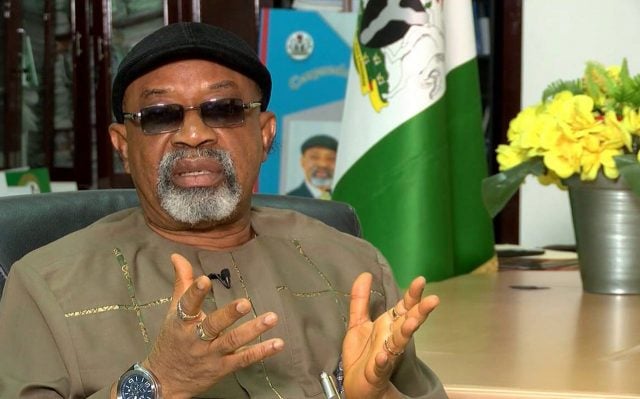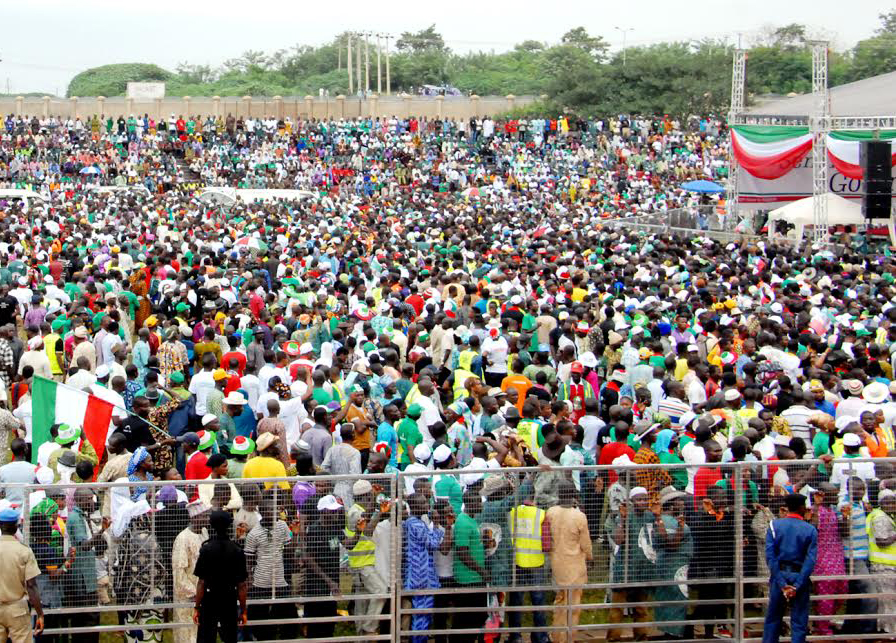In a response to an enquiry by the Punch Newspaper on the controversial‘’private visit’’ of President Muhammadu Buhari to the United Kingdom and the President’s refusal to transmit a letter to the National Assembly which would have enabled the Vice President, Prof. Yemi Osinbajo, to become the Acting President pending Mr. Buhari’s expected return to the country on May 5, 2019, the Senior Special Assistant to the President on Media and Publicity, Mr Garba Shehu told the Punch Newspaper thus:
“No, that is not necessary. The President can exercise authority from wherever he is as he is currently doing. This is a relatively short absence. If you check Section 145 (1) and (2) of the Constitution, you will see that the law is only infringed upon when such absence externs to 21 days.”
In faulting Mr. Shehu’s position above, it is pertinent to reproduce Section 145 (1) and (2) of the Constitution of the Federal Republic of Nigeria, 1999 (as amended),which will subsequently be referred to as ‘the Constitution’, cited by him in aid of his defense of his principal.
145 (1) ‘’Whenever the President is proceeding on vacation or is otherwise unable to discharge the functions of his Office, he shall transmit a written declaration to the President of the Senate and the Speaker of the House of Representatives to that effect, and until he transmits to them a written declaration to the contrary, the Vice-President shall perform the functions of the President as Acting President.’’
Advertisement
(2) ‘’In the event that the President is unable or fails to transmit the written declaration mentioned in subsection (1) of this section within 21 days, the National Assembly shall, by a resolution made by a simple majority of the vote of each House of the National Assembly, mandate the Vice-President to perform the functions of the office of the President as Acting President until the President transmits a letter to the President of the Senate and Speaker of the House of Representatives that he is now available to resume his functions as President.’’
The literal, grammatical and commonsensical reading of Section 145 (1) and (2) supra evinces the true purport of the said provisions and does not leave any room for ambiguity or debate as to the actual intention of the framers of the Constitution. The law is trite that the Constitution is a living document and must be given a liberal interpretation to fulfil the intention of its framers. The celebrated Supreme Court decision in BRONIK MOTORS LTD & ANOR v. WEMA BANK (1983) ALL NLR 272 is instructive on this point.
According to the Cambridge English Dictionary, whenever means ‘’every or any time’’. The same dictionary also defines vacation as ‘’a time when someone does not go to work or school but is free to do what they want, such as travel or relax’’.
Advertisement
President Buhari does not have the discretion or prerogative to embark or proceed on vacation outside the mandatory constitutional framework of Section 145 (1) and (2) of the Constitution. It is immaterial that the President’s spokesperson, Mr. Femi Adesina, mischievously decided to play with words when he referred to the President’s 10-day visit to the United Kingdom as ‘’a private visit’’.
If Adesina by his evasive statement, intended to distinguish the instant foreign trip of his principal from the vacation enshrined in Section 145 (1) and (2)of the Constitution, he unfortunately, has ended up exposing his ignorance of the law and contempt for the Nigerian people. The President’s so-called private visit is a vacation simpliciter. It is a distinction without a difference to assert a contrary view.
I am convinced that Mr. Garba Shehu did not seek sound legal opinion on the subject from the Attorney General of the Federation before clothing himself with the apparel of ‘a self-taught constitutional guru’ when he quoted Section 145 (1) and (2) of the Constitution authoritatively and proceeded to interpret it wrongly.
For starters, Section 145 (1) of the Constitution imposes a duty on the President. It is not a provision of convenience. The word used in Section 145 (1) is ‘’shall’’ which is a word of command and not permissive. See UGWU & ANOR V. ARARUME & ANOR (2007) 6 S.C. (Pt. 1) 88 where the Supreme Court reiterated the compulsive meaning of the word shall when used in an enactment.
Advertisement
As shown earlier, ‘’whenever’’ in this context implies that every or any time the President is proceeding on vacation he must transmit a written declaration to the President of the Senate and the Speaker of the House of Representatives to that effect.
The Constitution does not say that the President should transmit a written declaration if his vacation externs to or exceeds 21 days. That is a strange and indefensible attack on the spirit and letters of Section 145 (1) of the Constitution. Mr. Shehu’s proposition is with respect, an invention of his imagination. The Constitution expressly says ‘’whenever’’ (every time or any time). The fact that the president is proceeding on vacation for less than 21 days does not derogate from his duty to transmit a written declaration to the National Assembly.
Section 145 (2) only becomes operative and applicable if the President violates his constitutional duty under subsection (1) of Section 145. In other words, the National Assembly is authorised to intervene and pass a resolution empowering the Vice President to become the Acting President where the President violates subsection (1) by refusing or failing to transmit a written declaration as enjoined for a continuous period of 21 days.
There is no legal or moral justification for the President to commit such grave constitutional infraction even for one day. A grave violation of the Constitution amounts to gross misconduct which is an impeachable offense under Section 143 of the Constitution.
Advertisement
To say that Nigeria should remain for 10 days without a president or an acting president, is to say the least reprehensible. It becomes grossly offensive for the president’s spokesperson to go further to claim ridiculously that the president of the Federal Republic of Nigeria can exercise his presidential authority from anywhere.
The Nigerian Constitution does not have extra-territorial application. The President of Nigeria cannot exercise presidential powers from anywhere.
Advertisement
To put it in perspective, two examples will suffice: First, President Buhari cannot exercise his authority under Section 58(1) of the Constitution to assent to Bills passed by the National Assembly in the United Kingdom. He also cannot exercise his authority under Section 148 (2) of the Constitution to preside over the regular(weekly) Federal Executive Council meeting from the United Kingdom, or anywhere outside the territory of the Federal Republic of Nigeria.
The authority of the British Prime Minister over the affairs of the United Kingdom cannot be exercised in Nigeria, neither can the President of Nigeria govern or exercise authority over the affairs of Nigeria from the United Kingdom.
Advertisement
There is a reason why responsible foreign leaders in saner climes usually abort their foreign trips and return home upon the occurrence of national disasters or emergencies in their countries. It is not just for convenience sake; it is also because their constitutional authority either as President or Head of State, cannot be insulated from their state (country).
It is also apparent that Mallam Garba Shehu is either not aware or does not appreciate the traumatic historical mischief sought to be cured by the National Assembly when Section 145 of the Constitution was altered in 2010 by Section 14 of the Constitution of the Federal Republic of Nigeria (First Alteration), Act, 2010 and replaced with the now Section 145 (1) and (2) of the Constitution (as amended).
Advertisement
To refresh Mr. Shehu’s memory, it bears restating that Nigeria was thrown into palpable tension and deadly constitutional crisis when the Late President Umaru Musa Yar’Adua was flown abroad for medical treatment and he failed to transmit a written declaration (letter) to the National Assembly to enable his then Vice President, Goodluck Jonathan, to become the Acting President in his absence.
Following the dire situation which had prolonged resulting in an abuse of power by a vicious unpatriotic cabal who took advantage of the vacuum and arrogated powers to themselves, undermined Jonathan and overreached the nation, the National Assembly changed the law on the issue.
Before discussing the constitutional amendment embarked upon by the National Assembly in response to the ill-health crisis of the late Yar’Adua, it is important to reproduce the former (now repealed) provisions of Section 145 of the Constitution, it provided that:
145 “Whenever the President transmits to the President of the Senate and the Speaker of the House of Representatives a written declaration that he is proceeding on vacation or that he is otherwise unable to discharge the functions of his office, until he transmits to them a written declaration to the contrary such functions shall be discharged by the Vice-President as Acting President.’’
The National Assembly subsequently decided to bury the lacuna in the now repealed Section 145 of the Constitution above by doing three things essentially:
First, Section 145 was spited into two subsections which is now Section 145 (1) and (2) as reproduced above. Second, under subsection (1) of the new Section 145, the discretion of the President to determine when or whether to transmit a written declaration to the National Assembly whenever he is proceeding on vacation or unable to discharge the functions of his office was taken away.
The new subsection (1) now reads: ‘’Whenever the President is proceeding on vacation or is otherwise unable to discharge the functions of his Office, he shall transmit a written declaration to the President of the Senate and the Speaker of the House of Representatives to that effect…’’This means that any time the President is proceeding on vacation (irrespective of whether he chooses to call it a private visit or whatever name), he must transmit a written declaration to the National Assembly upon which the Vice President will become the Acting President.
The new position of the law as contained in subsection (1) of Section 145 will not only be lost, the ghost of the lacuna in the repealed Section 145 buried by the National Assembly in 2010 when the new constitutional regime was birthed will also be resurrected, if Mr. Shehu’s skewed interpretation were to be followed.
The third essential amendment to the repealed Section 145 is contained in subsection (2) of the new Section 145 of the Constitution wherein the National Assembly is authorised to bypass the President and pass a resolution empowering the Vice President to become the Acting President where the President violates subsection (1) by refusing or failing to transmit a written declaration as enjoined, for a continuous period of 21 days. The National Assembly did not possess such power under the repealed provision. That was why they resorted to the infamous ‘Doctrine of Necessity’ which was invoked for Mr. Goodluck Jonathan to become the Acting President.
Let me say that Nigeria will continue to be an gigantic embarrassment to the African continent and retain its disgraceful dark spot on the map of a progressive world until the leaders of this country and their appointees appreciate and accept to abide by basic tenets of democratic and civilized societies.
It is to the shame of the present administration that citizens of a 21st century Nigeria, have been arrogantly told that their President, who rode to power on a mantra of change, will be out of the country for 10 days for reasons that the presidency has classified and treated as official secret, not subject to full public disclosure.
Mr. Buhari must first resign as president if he wants to be accorded his right to privacy under Section 37 of the Constitution. But as long as his oath of office subsist, and he continues to enjoy the benefits and privileges accruable to the office of the President of Nigeria, he remains a public institution and his activities both at home and abroad, must be subjected to public scrutiny.
The health of the President of a country is never a private affair. The President cannot be using taxpayers’ money to fund his vacation (or private visit as they choose to call it) and at the same time tell the same taxpayers to shut-up and not interrogate his activities. There is nothing private about the office of the President.
This egregious effort to reduce Nigeria to a banana republic must be resisted by all Nigerians of good conscience.
Inibehe is Lagos-based constitutional lawyer and human rights activist.
Views expressed by contributors are strictly personal and not of TheCable.
Add a comment







